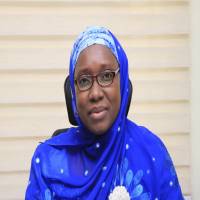
By Philip Yatai
The Kaduna State Project Implementation Unit, World Bank-supported Accelerating Nutrition Result in Nigeria (ANRiN) project, has secured 2.7 million dollars (about N1.1 billion) for the treatment of malnourished children.
ANRiN Project Coordinator in the state, Dr. Zainab Muhammad-Idris, made this known in an interview with the News Agency of Nigeria (NAN) in Kaduna on Wednesday.
Muhammad-Idris said that out of the amount, the project implementation unit has gotten an approval from the World Bank to spend 1.5 million dollar (about N621.3 million) in 2022.
She said that the money would be used to procure 13,758 cartons of Ready to Use Therapeutic Food (RUTF) for the treatment of children with severe acute malnutrition.
NAN reports that RUTF is an energy-dense, mineral- and vitamin-enriched food specifically designed to treat Severe Acute Malnutrition (SAM).
She added that part of the money would also be used to procure about 15,416 doses of supportive drugs used for the treatment of opportunistic infections and cover logistics support.
The project coordinator also said that the money would equally be used to scale up Community Management of Acute Malnutrition (CMAM) programme to cover the entire state.
According to her, the 13,758 cartons of the RUTF is expected to reach more than 30,000 malnourished children with treatment in 2022.
She said that the remaining US$1.2 million would be used for similar efforts in 2023.
“The World Bank approved funds for treatment of severe acute malnourished children and CMAM Programme in Kaduna State is US$2.7 million, equivalent to N1.1 billion at official exchange rate of N410 to a US dollar.
“Of this amount, US$1.5 million, equivalent to N621.3 million has been earmarked for the said intervention by the State ANRiN Project Implementation Unit for 2022 fiscal year.
“The remaining amount will be released and used for similar intervention in 2023,” she said.
NAN reports that ANRiN is a five-year World Bank-supported project designed to increase the utilisation of quality, cost-effective nutrition services for pregnant and lactating women, adolescent girls, and children less than five years.
The objective is to reduce chronic malnutrition, maternal and child mortality rates and in the long run, increase school completion, performance and improve labour force productivity.
Under the project, two non-state actors – eHealth Africa and Society for Family Health, are providing Integrated Basic Package of Nutrition Services and Adolescent Health Services at community level. (NAN)



